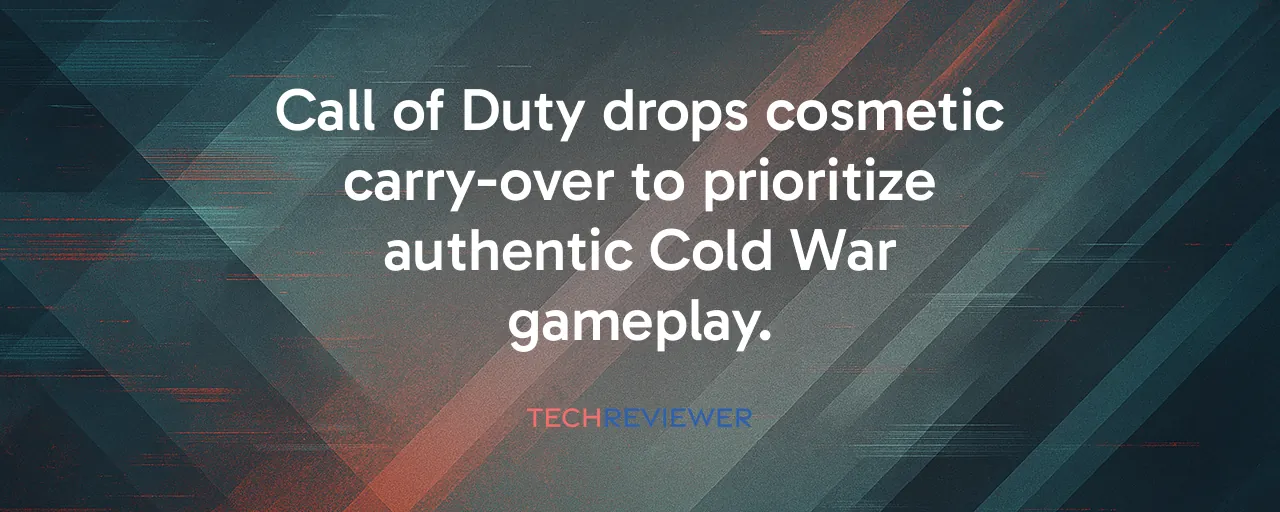A Return to Call of Duty's Roots
When Activision announced that Call of Duty: Black Ops 7, set for release in late 2026, would ditch the cosmetic carry-over from Black Ops 6, players took notice. For years, the franchise has leaned into a chaotic mix of operator skins, from Squid Game characters to neon tracer packs, blending pop culture with military grit. While some loved the playful vibe, others groaned at seeing Beavis and Butt-Head in a Cold War firefight. The decision to reset the slate for Black Ops 7, a spiritual successor to the fan-favorite Black Ops 2, signals a bold pivot toward authenticity.
The decision responds to a growing chorus of players, from casual fans to Call of Duty League pros, who've argued that mismatched skins disrupt the series' immersive tone. Activision, in its "Identity of Call of Duty" briefing, cited the need for a cohesive narrative and competitive balance. Double XP tokens and Zombies-mode GobbleGums will still transfer, preserving some player progress, but weapons and skins stay behind. The move echoes an earlier era of Call of Duty, where each title stood alone with its own identity.
Breaking the Cosmetic Clutter
The carry-over system, introduced with Warzone in 2020, let players carry cosmetics across Modern Warfare II, Modern Warfare III, and Black Ops 6. By late 2024, Black Ops 6 ballooned to a hefty 290 GB on PS5 and 315 GB on PC, partly due to over 2,300 imported cosmetic bundles. This caused headaches, with a 12% spike in texture memory crashes on Xbox Series S when legacy skins were equipped. For developers, porting these assets meant endless tweaks to weapon tuning, animations, and visuals, often clashing with Black Ops 7's new IW Engine 10, built for period-specific fidelity.
Activision's choice also sidesteps licensing headaches. Many crossover skins, tied to films or influencers, come with time-limited contracts that don't easily extend to new titles. By starting fresh, Black Ops 7 avoids the visual and technical baggage, aiming for a leaner install size (targeted at 140 GB on PS5) and fewer crashes. The move is practical, and it also acknowledges players who want a gritty Cold War shooter, aligning with a desire for realism.
The Digital Ownership Debate
Not everyone's cheering. Players who dropped serious cash on Black Ops 6 cosmetics now face a sunk-cost dilemma. Social media buzz shows frustration among high-spending fans, who feel their digital collections are losing value. This tension mirrors a 2023-24 case with Ubisoft, where the shutdown of online services for older titles sparked backlash over inaccessible DLC. Activision is keeping Warzone as a hub for legacy cosmetics, ensuring Black Ops 6 skins remain playable there. However, Black Ops 7 buyers face a fresh start, whether they like it or not.
The decision also taps into broader questions about digital ownership. With EU regulators eyeing the Digital Goods Act and the U.S. FTC scrutinizing in-game purchases, Activision's move could set a precedent. Are non-transferable cosmetics fair to players, especially minors, who might not grasp their temporary nature? Game ethicists debate whether time-limited cosmetic ownership should be marketed similarly to permanent content.
Lessons From the Competition
Activision's pivot has parallels in the industry. EA's Battlefield 2042, after facing criticism for its cluttered cosmetics, shifted to a curated, realistic approach with its 2024 Redux season, winning back fans. Similarly, Ubisoft's Rainbow Six: Siege doubled down on tactical authenticity in its Year 10 roadmap, prioritizing immersion over pop-culture tie-ins. These moves show a trend: players crave experiences that feel true to a game's core, especially in premium titles.
Battlefield 6's recent leaks suggest EA is moving away from unrealistic skins and cosmetics, with tighter thematic control than Call of Duty's past mashups. Activision's gamble with Black Ops 7 could pay off by appealing to purists while keeping Warzone as a playground for eclectic skins. If successful, it might nudge competitors toward hybrid models, splitting narrative-driven games from free-to-play cosmetic hubs.
What's Next for Call of Duty?
Black Ops 7's reset offers a chance to redefine Call of Duty's premium experience. By focusing on a Cold War aesthetic, Treyarch aims to recapture the intensity of Black Ops 2 while leveraging new tech for sharper visuals and smoother gameplay. The stakes are high. A 2025 GDC survey found that 61% of AAA developers struggle with technical debt from sprawling cosmetic libraries, and Activision's lighter approach could ease those burdens while reducing storage and carbon footprint, aligning with its 2030 sustainability goals.
For players, the trade-off is clear: a more focused game versus the loss of cherished skins. Activision's betting that authenticity will win out, but it'll need to communicate clearly to avoid alienating fans. As the industry watches, Black Ops 7 could mark a turning point, proving that sometimes, less is more in the race to keep shooters fresh and engaging.
